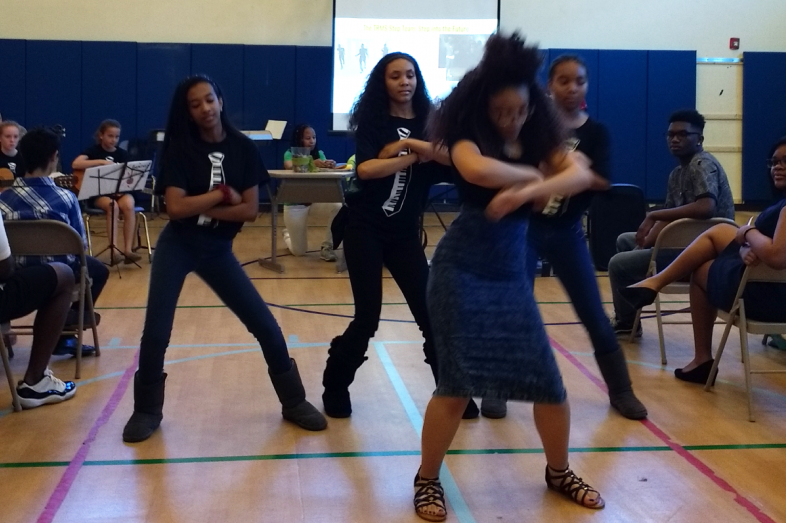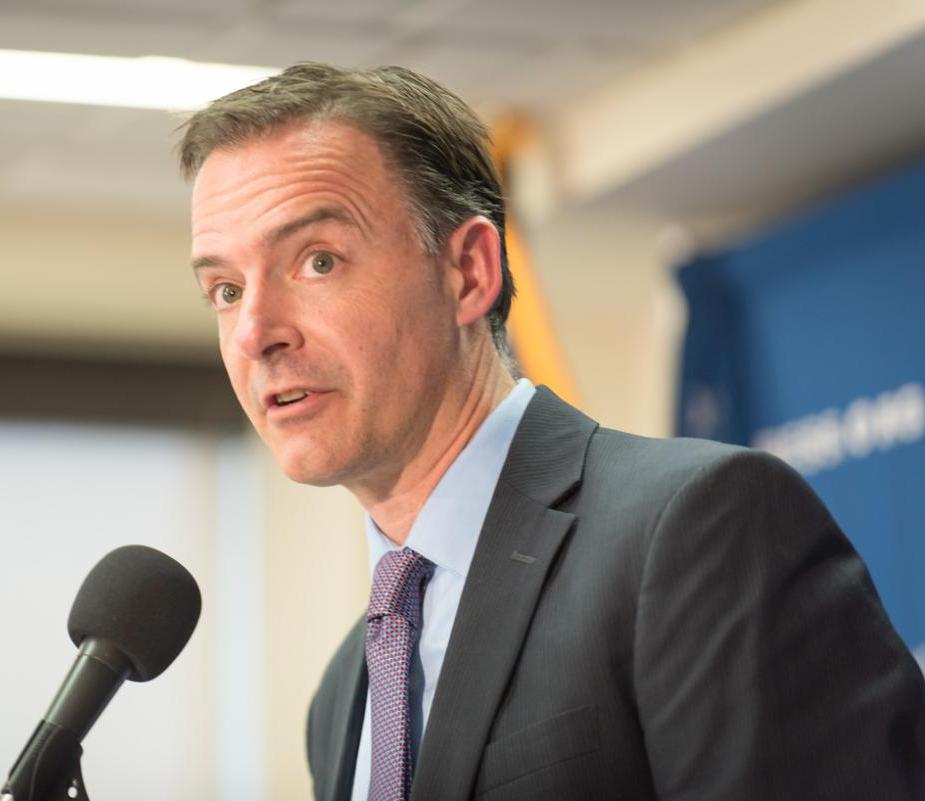

The second-graders at a charter school in the nation’s capital recently discovered a problem: a lack of “green spaces” in certain parts of the city.
The students at Two Rivers Public Charter School conducted research. But they didn’t stop there. They also wrote letters to the city council to share their concerns about inequitable access to green spaces across Washington, D.C.
The letters described the situation, explained why having such spaces in urban environments is important, and offered solutions, including the idea of helping to plant gardens near campus.
“Even though they can’t be legislators at age 8, who are they? They are citizens,” said Elaine Hou, an instructional coach at Two Rivers. “It’s the whole idea of being engaged citizens and informed about the legislative process.”
Entry Points
The project is just one example of the “expeditions” Two Rivers students at all grade levels carry out each year as part of their education: long-term, in-depth investigations that seek to help students connect social studies and science topics to the real world.
Expeditions involve original research, critical thinking, and problem-solving. They also seek to build students’ character alongside academic skills.
“Project-based learning gives so many different entry points for kids to show what they know,” said Hou.
First-graders last year conducted an expedition about spiders, including why they are good for the ecosystem. The student drawings of spiders were displayed prominently in a school hallway. Fourth-graders investigated the history of the Jamestown settlement in Virginia, and considered multiple perspectives, including that of Africans, colonists, and Native Americans. Seventh-graders focused on restoring the Anacostia River watershed.
Earlier this year, Two Rivers charter school, which serves more than 500 students in pre-K to 8th grade on three campuses, hosted visitors from the Education Writers Association’s National Seminar.
Jessica Wodatch, the executive director and co-founder of Two Rivers, reflected on the value of expeditions, which she said typically include a social-justice dimension.
“It’s really powerful,” she said. “Think about what you learned in elementary school and middle school. You do not remember much. But expeditions matter.”
With the study of Jamestown, she said: “We look at the three cultures that came together. We also look at why there aren’t that many resources on the experience of the Africans at Jamestown.”
Ultimately, Wodatch said, Two Rivers aims to develop students academically, but also looks to go beyond that.
“I think of … building community, character, and citizenship as an integral part of our school,” she said.
‘I Like the Hands-on Learning’
Two Rivers Public Charter School is a member of the EL Education network of schools (formerly called Expeditionary Learning), which emphasizes the value of such expeditions as part of its educational model. As the network puts it, “When students and teachers are engaged in work that is challenging, adventurous and meaningful, learning and achievement flourish.”
Two Rivers, which opened in 2004, has drawn national and local attention for its work, including a 2015 feature story by Washington Post reporter Michael Alison Chandler, “Learning Is an Expedition at Schools That Enhance Class With Field Work.”
The Post story singled out the Jamestown expedition, a recurring feature at Two Rivers. A visit to the Virginia historical site was a “memorable experience” for 9-year-old Evan Bowie, she wrote.
“We got to spend the night,” Bowie told the Post. “We got to go on ships, and I got to hold a sword and a shield and put on armor.”
The Post story noted that such project-based learning “is gaining popularity at a time when many parents and educators are concerned that a focus on test-based accountability has promoted rote learning, is taking fun out of school, and is not preparing students for the real-world rigors of today’s workplace.”
The story also pointed out that Two Rivers is a popular choice for D.C. families, as it had the longest waiting list for any public charter school in 2015. (Students are selected through a lottery. About half of the students are eligible for a free or reduced-price lunch.)
During the recent EWA visit, students were upbeat about the ways Two Rivers goes beyond conventional classroom instruction.
“I like the hands-on learning,” said one fifth-grader. “We’re not just sitting there listening to the teacher talk all day long.” Another chimed in, “You get to learn stuff while having fun.”
Two Rivers also was the subject of a 2015 case study by the National Charter School Resource Center.
In addition, it has received high ratings from the D.C. Public Charter School Board. It has consistently been named a ”Tier 1″ school through a ratings system that considers student test scores, as well as attendance, re-enrollment rates, and other factors.
Last year, Two Rivers was awarded a grant under the Assessment for Learning project to work with a center at Stanford University on developing new ways to assess students. (That project is supported by the Bill & Melinda Gates Foundation and the William and Flora Hewlett Foundation, which both have provided grant funding to EWA.)
“We’ve been working on developing assessments of critical thinking and problem-solving,” said Maggie Bello, the chief academic officer at Two Rivers. “They’re performance tasks.”
A ‘Master’s Defense’ for Seventh Graders
Also, seventh-graders at Two Rivers participate in what’s called the “passage portfolio,” which they must successfully complete before advancing to eighth grade. Students present an electronic portfolio of their work to a panel of Two Rivers educators and then respond to questions about it. In addition, there is an “about me” section, where students discuss their strengths, areas that need development, and where they need to grow over time.
“It’s kind of like a master’s defense,” Bello said. “You’re defending your education at Two Rivers and you have to pass. And if you don’t pass, you have to redo it. It’s high stakes. And so that builds character and perseverance, growth mindset.”
If you talk with educators at Two Rivers about their school, a common theme is the importance of building a sense of community on campus.
“For me, what defines Two Rivers really is community,” said Bethany Jenkins, who teaches second grade. “It’s the sense of community for parents, for kids, for the staff.”
One prime example is the weekly community meetings with students and faculty. In June, at the middle school campus, a special Friday morning meeting celebrated the eighth-graders as the school year was winding down. Middle schoolers were assembled in the gymnasium, along with some families, too.
“When our eighth graders come in, we are going to give them the loudest round of applause that we can muster up for their final community meeting with all of us,” declared Nakeisha Jones-Helton, the dean of students and families. “This will be you one day, so make sure you are cheering for them the way you want someone to cheer for you guys, because in the blink of an eye, it will be you.”
“Part of being a community,” Wodatch said, “is meeting [as a] community. Seeing each other and celebrating our achievements and being silly together and being serious together.”
She added, “It really is a time to come together and celebrate the things we value.”

